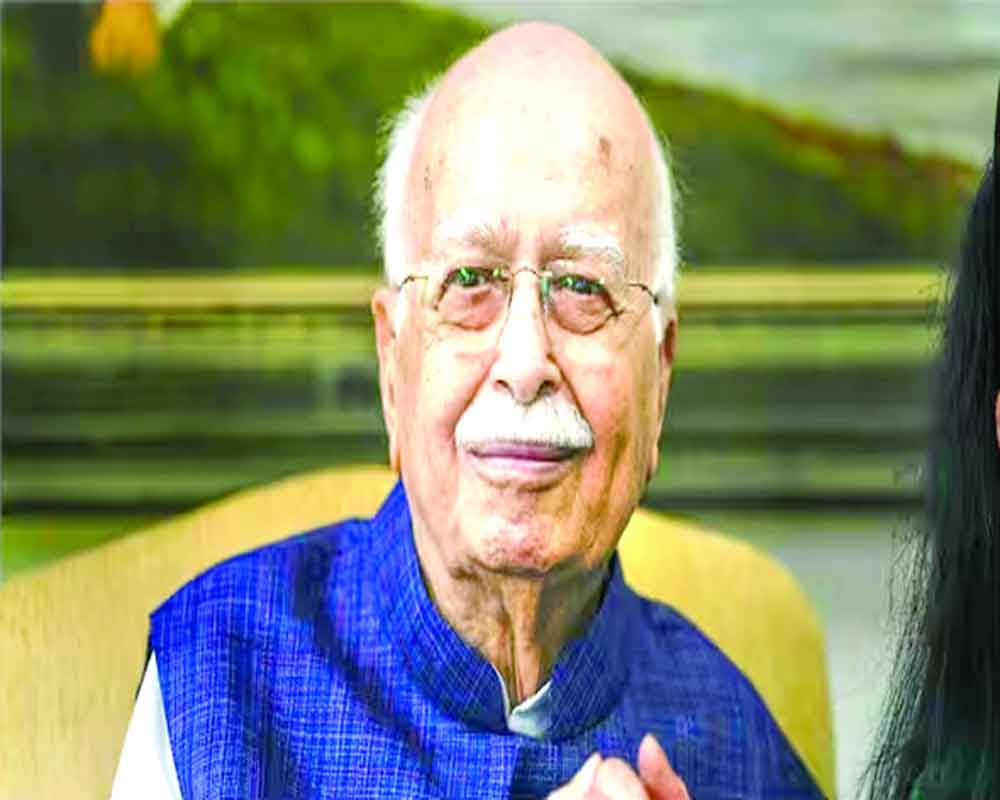From attacking pseudo-secularism to pan-India moderation, it was as if Advani had given up his yesterday for the sake of the BJP’s and the country’s tomorrow
The biggest sacrifice Lal Krishna Advani made was to distance himself from the culmination of the Babri edifice at Ayodhya. Understandably, the Hindu public was disappointed; Advani’s followers were heartbroken. Many of them went to the extent of alleging that he had let down the cause.For a conscientious leader, this was like cutting his nose and throwing it away. During the spring of 1991, Advani told me that it was Ayodhya that had made him a national figure. Until his leading the Rathyatra from Somnath to hopefully reach the birthplace of Shri Ramchandra—which was intercepted by Lalu Prasad Yadav at Samastipur in 1990—Advani was merely a senior party apparatchik.
It was his taking up the cause of the Ramjanmabhoomi that catapulted him to the gallery of national figures.When, therefore, Advani spoke to the press saying that December 6, 1992, was the darkest day of his life, he knew what he was throwing away. Soon thereafter, accompanied by friends, I called on him at the Irrigation Department’s guest house near Jhansi, where he along with a few other senior BJP leaders had been kept under house arrest, following the demolition of the Babri edifice on that fateful day of December 6 that year. Advani told me that after seeing my letter published in the Pioneer, wherein I had in rejoinder to his remark written that “There have been darker days”, he knew I had come to protest against his statement. It took him quite a while before he came around to believing my denial. He was right to the extent that I continued to hold the view (which I of course, still do) that the Babri edifice was a baggage of dacoity and had to be confiscated.
Advani then went on to explain: Whatever my explanation, I had to realise that party unity, regardless of anything else, was our uppermost duty. Atalji (Vajpayee) was our seniormost leader, and no party member should differ with him publicly on such a matter of policy. Should party members flagrantly violate their party’s commitment made to the Supreme Court, that the edifice would be safe? Its future was for the court to decide. First, who then would ever again have faith in the word of a BJP leader?
Secondly, the opposing parties would go to town saying that the BJP was a party ridden with factions. Its top leader does not believe in masjid-hunting while one of its chief ministers practices the exact opposite.
Thirdly, an upright party is a united party, and we are known as a party with a difference. Becoming a faction-ridden party is not the difference between our aspirations. Fourthly, discipline has been our hallmark. Did the karsevaks at Ayodhya behave in a disciplined way, by going against the leadership and demolishing a place of worship of another community?
In April 1998, I became the party’s Member of the Rajya Sabha through a bye-election. Among members generally, it seemed that interest in Ayodhya had waned. The case lay in court without active hearings. When I thought of the vanished edifice, I did wonder whether at that rate the Congress with a clever leader might just snatch the issue out of the BJP’s hands and use it for electoral benefit. How popular the issue was kept becoming clear over and over again.
Meanwhile, many more pilgrims continued to visit the holy city.One day in July 1999, Advani called me to his room in Parliament House for a chat over toast and coffee. He opened up by showering praise on Vajpayee’s tactful leadership of a coalition of so many parties with so many different political ideologies ranging from the Shiv Sena on the one hand to the DMK on the other.
There was no doubt that Vajpayee was running a complex government very successfully. Advani was full of praise for his leadership. If there is to be another leader in the future, he should have the wide acceptance and loyalty that Atalji commanded. That is what a diverse country like ours needs, Advani opined.
All of us in our party should give up small differences and think of large policy issues. Automatically, such a leader and his party would attract votes as well as an ongoing following.
He went on to say that India’s future lies in the integrity of politics.Rather than recommending any shift towards moderation or ‘soft secularism’, Advani stressed the unity of thought, policy and leadership. By implication, he was asking for a united party under a broadminded leader. He was repeatedly emphatic about parties rather than the party.
Even dynastic parties are not free of factions and breakups, and it is the BJP alone that has admirably avoided going that way. It seemed as though he wanted to give up all he had stood for earlier and espouse a new cause, not only for the BJP but for the sake of the country.
As I knew him, I can state that this was no mere shift but a sacrifice. From his eloquence of attacking pseudo-secularism to pan-India moderation, it was as if Advani had given up his yesterday for the sake of the BJP’s and the country’s tomorrow. It could not have been easy for him, but that is what he is.
(The writer is a well-known columnist, an author and a former member of the Rajya Sabha. The views expressed are personal)


























